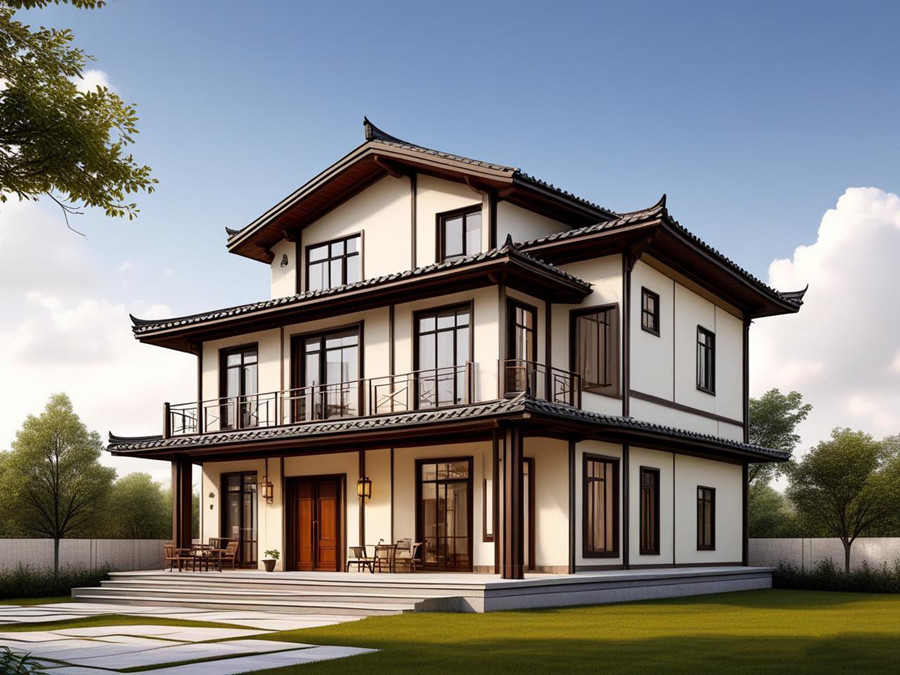Light steel villas have gained significant popularity in recent years due to their numerous advantages, such as quick construction, energy - efficiency, and environmental friendliness. However, a common concern among potential homeowners is whether these villas will leak on rainy days. In this article, we will explore the factors that may lead to leakage and the preventive measures to ensure a dry and comfortable living environment.

Factors That May Cause Leakage in Light Steel Villas
1. Poor Roof Waterproofing
The roof is the first line of defense against rainwater. If the waterproofing materials used on the roof are of low quality or not installed correctly, it can lead to leakage. For example, if the asphalt waterproofing membrane has gaps or is not properly sealed at the joints, rainwater can seep through. Also, long - term exposure to harsh weather conditions can cause the waterproofing materials to deteriorate over time.
2. Improper Sealing of Windows and Doors
Windows and doors are another area where leakage can occur. If the seals around windows and doors are damaged or not installed tightly, rainwater can enter the villa. This is especially true during heavy rain or strong winds, when water can be forced through small gaps.
3. Faulty Drainage System
A well - functioning drainage system is crucial for preventing water accumulation on the roof and around the villa. If the gutters are clogged with leaves, debris, or dirt, water cannot flow freely, leading to water pooling on the roof. This can increase the pressure on the waterproofing layer and eventually cause leakage.
4. Structural Defects
In some cases, structural defects in the light steel frame can also contribute to leakage. For example, if there are cracks in the steel frame or the connections between different parts are not secure, it can affect the overall integrity of the villa and allow water to penetrate.
Preventive Measures to Avoid Leakage
1. High - Quality Waterproofing Materials
When constructing a light steel villa, it is essential to choose high - quality waterproofing materials for the roof. Polymer waterproofing membranes are a popular choice due to their excellent elasticity and tensile strength. They can withstand temperature changes and are less likely to crack or peel over time.
2. Proper Installation
Proper installation of waterproofing materials, windows, doors, and the drainage system is crucial. Professional installers should be hired to ensure that all components are installed correctly and sealed tightly. For example, when installing the roof waterproofing membrane, it should be laid flat and the joints should be carefully sealed to prevent water from seeping through.
3. Regular Maintenance
Regular maintenance is key to preventing leakage in light steel villas. Homeowners should regularly inspect the roof, windows, doors, and drainage system. Check for any signs of damage, such as cracks in the waterproofing layer, loose seals around windows and doors, or clogged gutters. If any issues are found, they should be repaired immediately.
4. Structural Inspection
Periodic structural inspections should also be carried out to ensure the integrity of the light steel frame. Check for any signs of corrosion, cracks, or loose connections. If necessary, reinforce the structure to prevent water from entering through structural defects.
In conclusion, while light steel villas may have the potential to leak on rainy days, proper construction, high - quality materials, and regular maintenance can effectively prevent leakage. By taking these preventive measures, homeowners can enjoy a dry and comfortable living environment in their light steel villas, even during the rainiest of seasons.